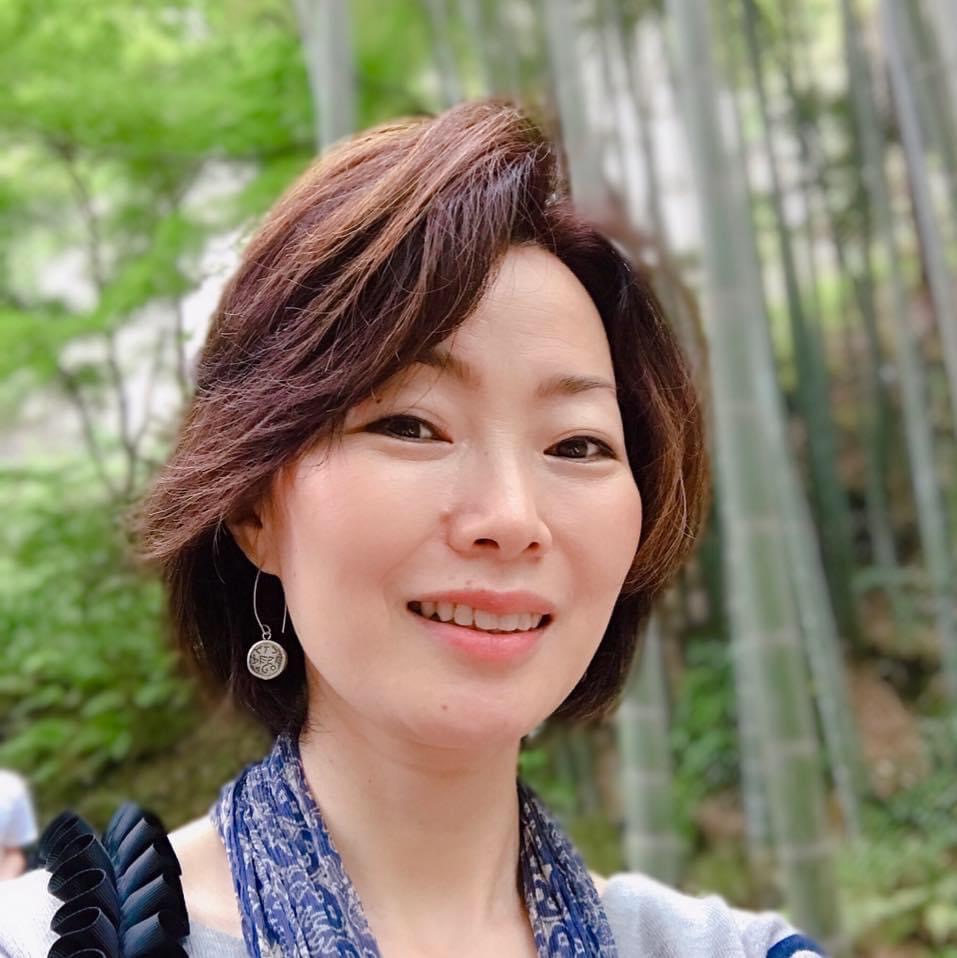English – the lingua franca of the world
Helping children use English freely as their second language
Khulan was born and raised in Ulaanbaatar, Mongolia – personally experiencing the tumultuous period following the country’s sudden shift from socialism to democracy in 1992. From age 4-6 she resided in Russia due to her father’s job as a civil servant, during which time Khulan mastered the language.
Interacting with Russian diplomats sparked an interest in languages other than her native tongue. Since Mongolia transitioned to democracy in 1992, there has been an influx of foreigners visiting Mongolia, motivating her to start studying English. After receiving a nursing qualification from a nursing university, she decided to dedicate herself to her English studies –enrolling in the Mongolian National University of Education to study English, and even went to America to study abroad. During her time at the University of Education, she met and married a Japanese man. She then went on to study the language at the University of Indonesia following her husband’s relocation to Indonesia for work. Accompanying her child on study abroad, she pursued early childhood education at Sprott Shaw College in Canada. Currently, leveraging the knowledge gained in Canada, she teaches English classes for 2 to 6-year-olds at an international school in Hamamatsu. Recognizing English as a globally shared language, she believes that understanding English brings the world closer and broadens perspectives. I interviewed Khulan regarding the importance of English education and what she wants to convey to children through education.
Can you share your experiences growing up in Mongolia
Following its transition from socialism to democracy in 1992, Mongolia suddenly found itself free and open to foreigners, after so many years of being managed and controlled by Russia. During those years of socialism, I had lived in Russia because of my father’s job as a civil servant, and learning Russian during this time was what lead me to develop an interest in languages. At the time, the Russian diplomats were so wonderful and friendly, and I remember them always indulging me with conversation. There was also a time in my life in the period just following the switch to democracy where the flow of goods from Russia stopped and we found ourselves with nothing. My time spent in Mongolia was a tumultuous one, rife with change.
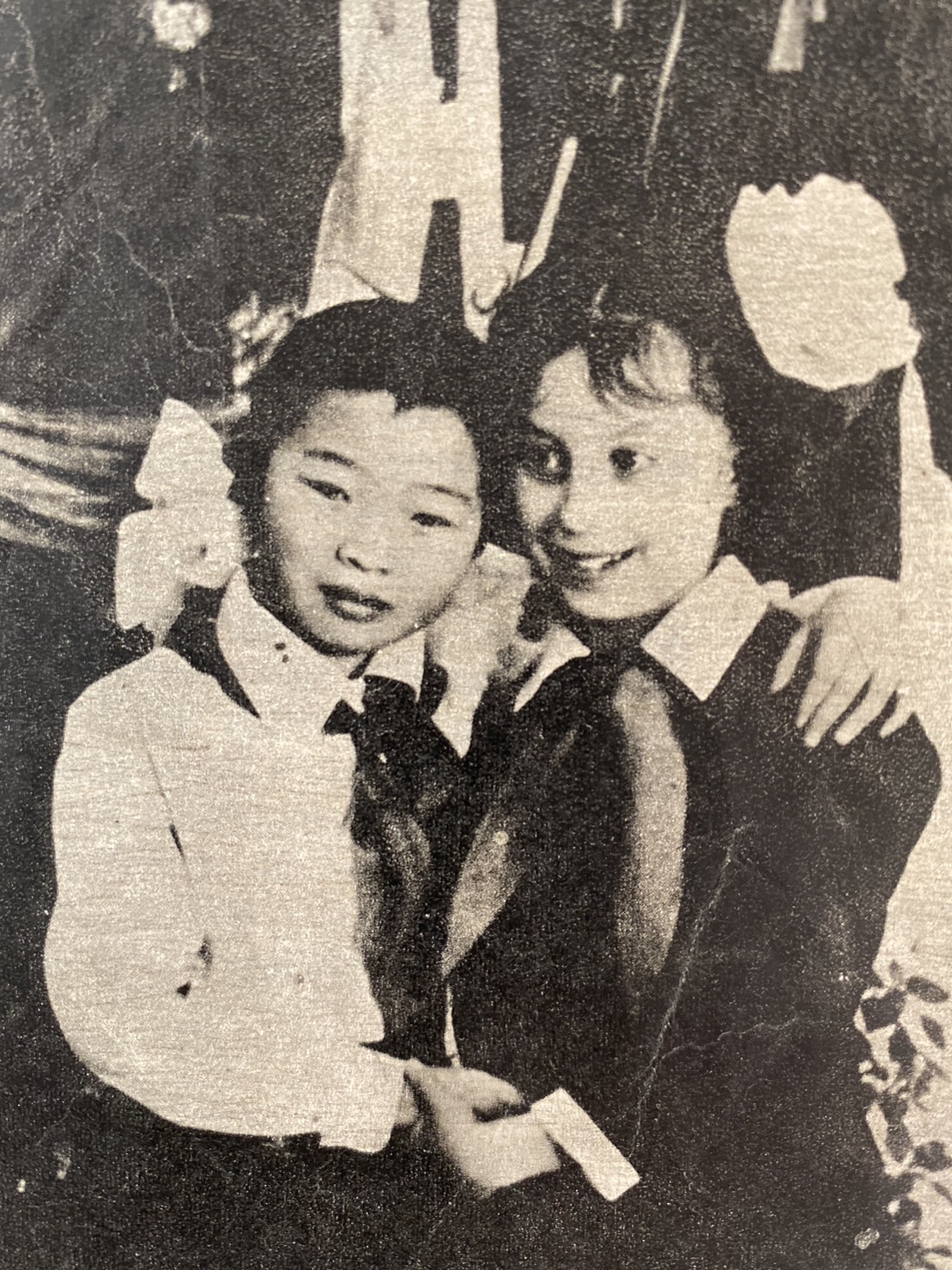
You said that you are a graduate of both a nursing university and education university in Mongolia, is that correct?
The shift from socialism to democracy actually happened whilst I was attending nursing college. From a young age I had an interest in people’s bodies and minds, so I was considering becoming a doctor. But then the shift to democracy happened and our country opened up to foreigners from the English-speaking world. I had always had an interest in languages, so I switched my sights from becoming a doctor to getting a nursing qualification from a nursing university. Subsequently, I enrolled in the English department at the Mongolian National University, where I immersed myself in English. Understanding English allowed me to access information from around the world, and the ability to comprehend the language provided a tangible sense of broadening my horizons.
Have you discovered anything through learning English?
During the socialist era, all external information was completely shut down, and we were taught that both Japan and the United States were not good countries. However, thanks to the introduction of democracy and my English studies, I was able to access information from various countries through English literature which provided me with profound insights into my own country’s roots, history, and the suppressed aspects of its past. Exploring the histories of Japan and the United States ignited my curiosity, prompting a desire to witness firsthand what these countries were truly like. During my time at the Mongolian National University of Education, I also had the opportunity to study abroad in Dallas, USA. Speaking English allowed me to organically interact with local people, and it was satisfying to be able to discover firsthand what kind of place the United States was.
During her university years, Khulan served as an interpreter, it was here where she would meet her Japanese husband. Following their marriage, she embarked on a new chapter by moving to Japan. However, their journey took an unexpected turn when her husband’s job necessitated a move to Indonesia shortly after their arrival. The dynamic Khulan embraced the challenge, enrolling in a university in Indonesia and mastering the Indonesian language. After the birth of their child, she returned to Japan, facing initial hurdles as she navigated an environment where her understanding of Japanese was not yet fluent. This was a time when translation apps on smartphones were not readily available, and parenting in a foreign-friendly atmosphere posed its challenges. Determined to overcome these hurdles, Khulan devoted herself to diligent study. She attended Japanese classes, engaged in self-study, and eventually passed the Japanese Language Proficiency Test N1. Presently, she stands as a polyglot, fluent in Mongolian, English, Japanese, Indonesian, and Russian. Since 2020, she has been working as a teacher at an international school, sharing the experiences she has gained worldwide with children. In the latter part of the interview, we will delve into her experiences from her arrival in Japan until the present day.
What were some things you struggled with after coming to Japan?
Well, we are talking about the days when we didn’t have anything like there is now – like those handy translation apps on your smartphone. Nowadays, we often come across signboards with English or Portuguese translations, but when I first arrived in Japan, they were virtually non-existent. The support system for foreigners was not well-established, making every document a challenge. When my child was in elementary school and I was elected as a PTA public relations officer, summarizing meeting minutes in Japanese was quite a struggle. I would write them in English, have my husband translate them into Japanese, and then compile the minutes myself for submission. It was a challenging process. In Japan, the habit of jotting down communication with the school, including notes and other announcements, in a notebook is commonplace. However, during that time I still faced difficulties in understanding Japanese, so this was a real struggle.
How did you learn Japanese?
I did some self-studying whilst attending a Japanese classroom. Mongolian people and Japanese people look quite similar so it`s often difficult to tell them apart. At school events I was often told “you should definitely be able to do this,” which was a lot of pressure. The frustration and hardships served as motivation to work even harder, and in my third year in Japan, I passed the Japanese Language Proficiency Test N1.I do think that loving to study languages definitely worked to my advantage, though.
You’re currently working as a teacher at an international school in Hamamatsu. Could you share more about the kind of lessons you teach?
Certainly! I converse entirely in English with the children. I’m responsible for a class of five-year-olds, with half of them having a good understanding of Japanese and challenging themselves to attain Practical English Proficiency levels 4 or 5. The educational approach involves familiarizing students with English in small bursts and, once they are comfortable, recognizing English in its written form.
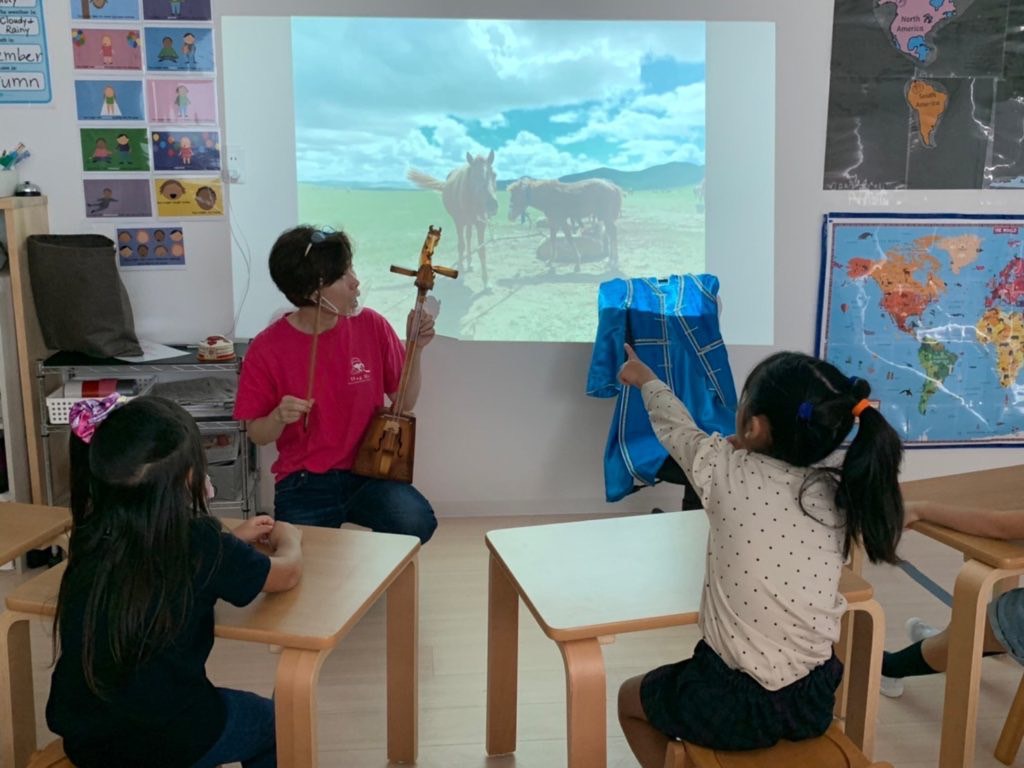
子どもたちに英語でモンゴル文化を紹介
Having lived in various countries, do you notice any differences in Japanese children?
Absolutely. In Canada, I learned about early childhood education and observed that many Japanese children struggle to express their emotions due to constant consideration for their parents and those around them. I encourage children to express themselves, reassuring them that it’s okay to cry or admit difficulties. Expressing emotions is vital for their growth and development.
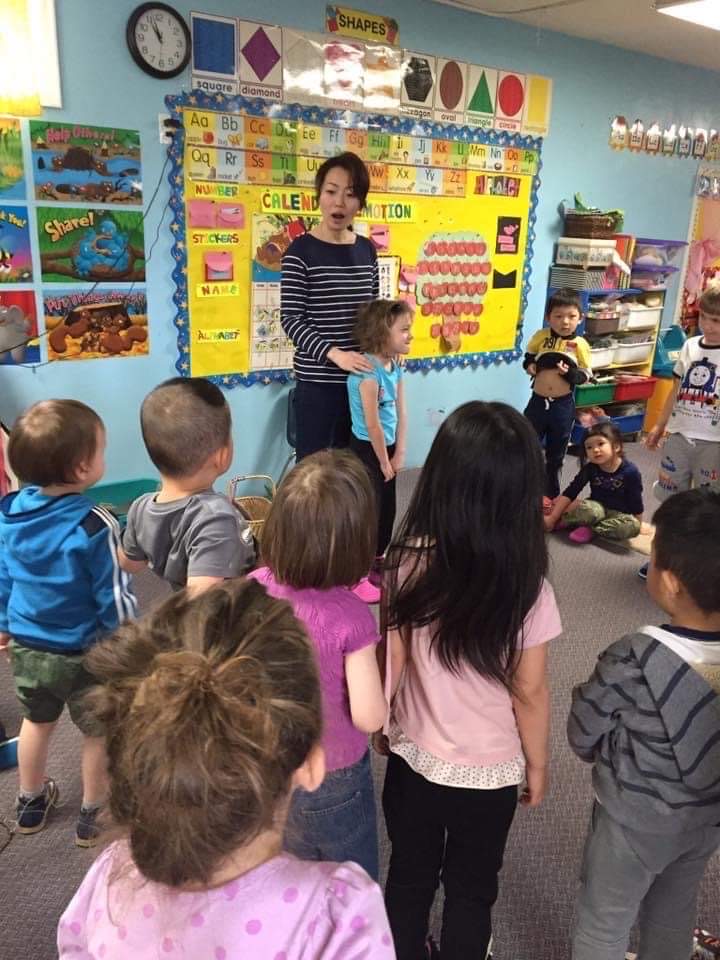
~How are you able to convey the positive aspects of Japan to children?
For Japanese people, upholding rules, being punctual, and keeping promises are all a given – but that’s not the same for the rest of the world. The Japanese are a proud people. I try to let the children know that they are incredibly lucky to be born in such a great country and to be able to receive a proper education.
What are your thoughts on the importance of English education?
Learning English as a second language provides children with more opportunities for their future. While English is taught in Japan from elementary school onwards, there are limited spaces for actual English communication. Creating more opportunities to use English for global communication, rather than solely for exam purposes, would open up numerous possibilities for these children.
I’ve heard you also help interpret for foreign mothers alongside your teaching duties?
Yes, I’ve had firsthand experiences struggling with school events due to language barriers, and I want to support mothers in a similar situation. By explaining various events and how Japanese schools operate, I aim to help mothers so their children can enjoy school life with peace of mind.
It sounds like you’re encouraging foreign mothers to learn Japanese?
Absolutely. Some mothers feel they don’t need to learn Japanese as they have a good support system. However, many children born in Japan end up speaking Japanese better than their native language. I’ve encountered cases where mothers can’t communicate effectively with their own child due to language barriers. My role as an interpreter is to assist struggling mothers, and I encourage them to proactively study Japanese and engage with their local communities and schools.
So what’s on the cards for you now?
I studied early childhood education in Canada, and now, I have the opportunity to interact with children in English at an international school, witnessing their day-to-day growth. I believe that enabling Japanese children to use English freely and engage globally would contribute to the overall improvement of Japanese society. I hope to play a part in making that happen.
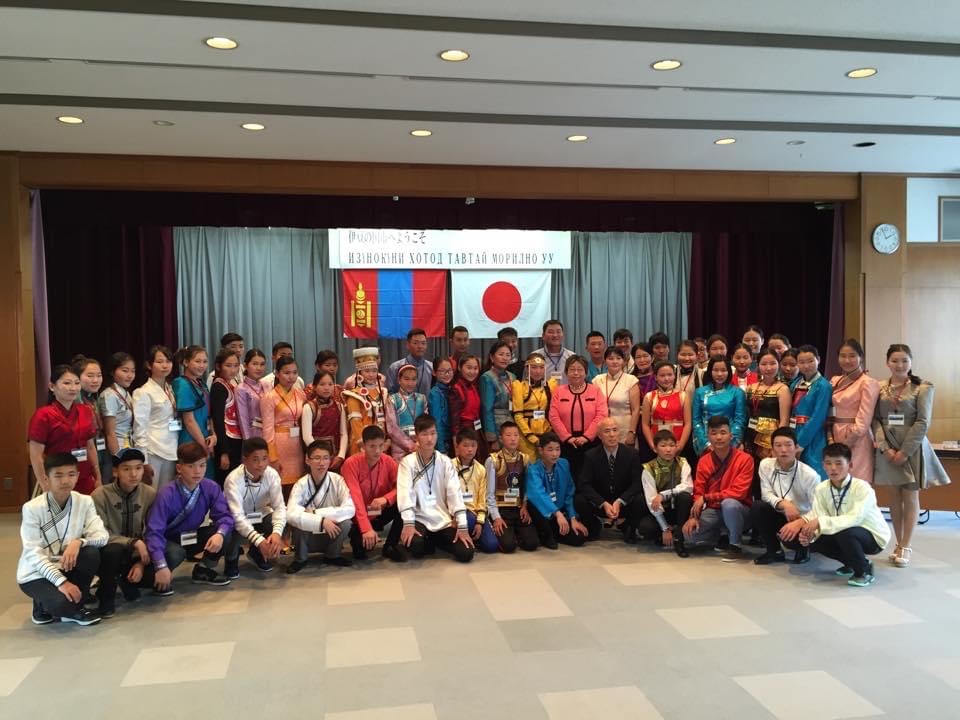
通訳の仕事でたずさわっています
We’re looking forward to hearing all about what you do next! Thank you so much for your time today.
(Interviewed in November 2023)
Khulan Iino
Born in 1974, in Ulaanbaatar, Mongolia.
Education
1991-1993: Graduated from the Faculty of Nursing at the Mongolian National University of Medical Sciences.
1993-1997: Graduated from the Mongolian National University of Education.
1999-2000: Completed the Language Proficiency Certificate Program at the University of Indonesia.
2016-2018: Graduated from Sprott Shaw College (IT+CWE – Early Childhood Education + Basic IT + Common Vulnerabilities and Exposures).
2020-present: Working as an English teacher at “HugMe” International School in Hamamatsu.
A polyglot who can speak Mongolian, English, Japanese, Indonesian, and Russian
